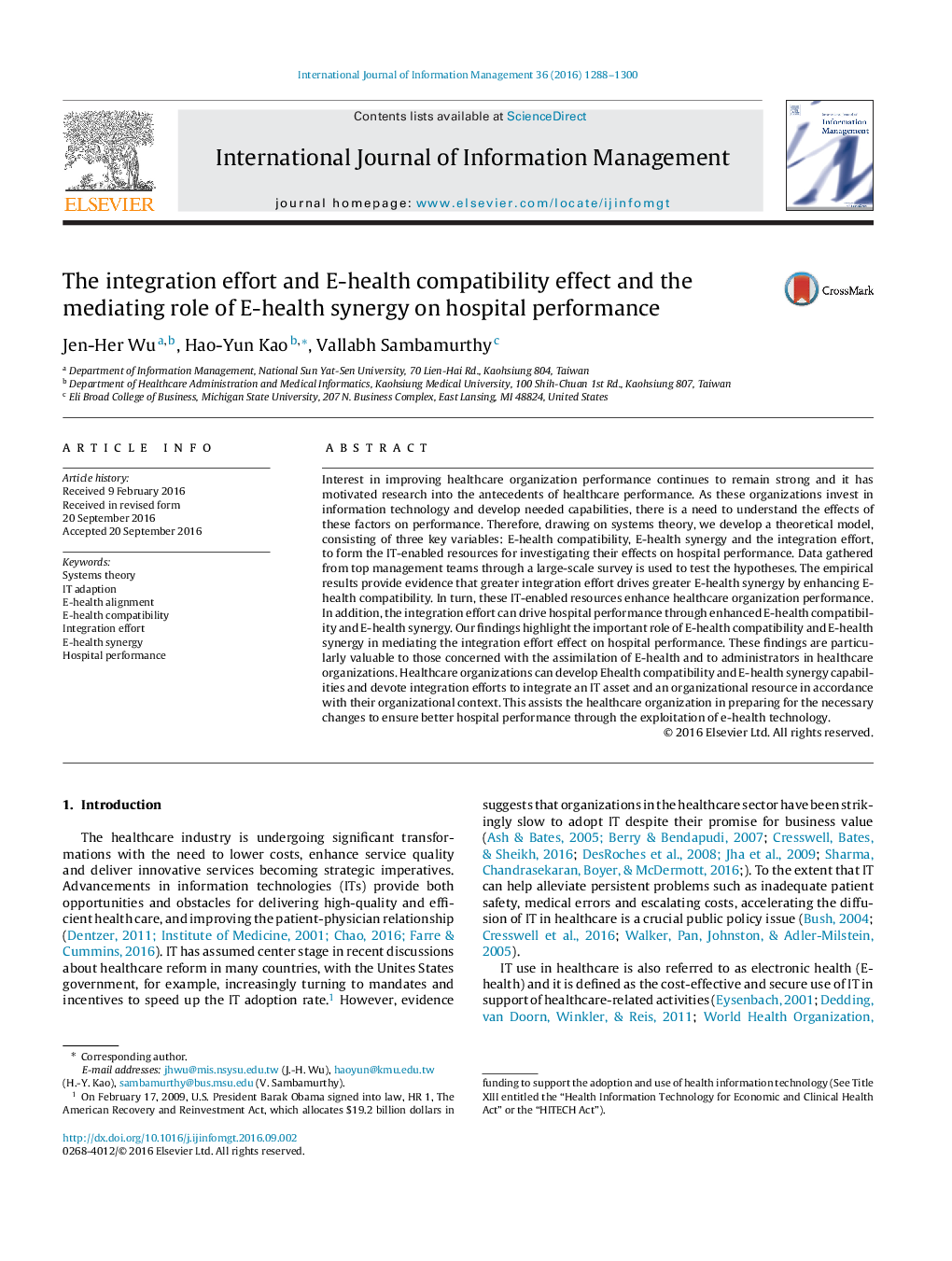| Article ID | Journal | Published Year | Pages | File Type |
|---|---|---|---|---|
| 5110872 | International Journal of Information Management | 2016 | 13 Pages |
Abstract
Interest in improving healthcare organization performance continues to remain strong and it has motivated research into the antecedents of healthcare performance. As these organizations invest in information technology and develop needed capabilities, there is a need to understand the effects of these factors on performance. Therefore, drawing on systems theory, we develop a theoretical model, consisting of three key variables: E-health compatibility, E-health synergy and the integration effort, to form the IT-enabled resources for investigating their effects on hospital performance. Data gathered from top management teams through a large-scale survey is used to test the hypotheses. The empirical results provide evidence that greater integration effort drives greater E-health synergy by enhancing E-health compatibility. In turn, these IT-enabled resources enhance healthcare organization performance. In addition, the integration effort can drive hospital performance through enhanced E-health compatibility and E-health synergy. Our findings highlight the important role of E-health compatibility and E-health synergy in mediating the integration effort effect on hospital performance. These findings are particularly valuable to those concerned with the assimilation of E-health and to administrators in healthcare organizations. Healthcare organizations can develop Ehealth compatibility and E-health synergy capabilities and devote integration efforts to integrate an IT asset and an organizational resource in accordance with their organizational context. This assists the healthcare organization in preparing for the necessary changes to ensure better hospital performance through the exploitation of e-health technology.
Keywords
Related Topics
Social Sciences and Humanities
Business, Management and Accounting
Management Information Systems
Authors
Jen-Her Wu, Hao-Yun Kao, Vallabh Sambamurthy,
